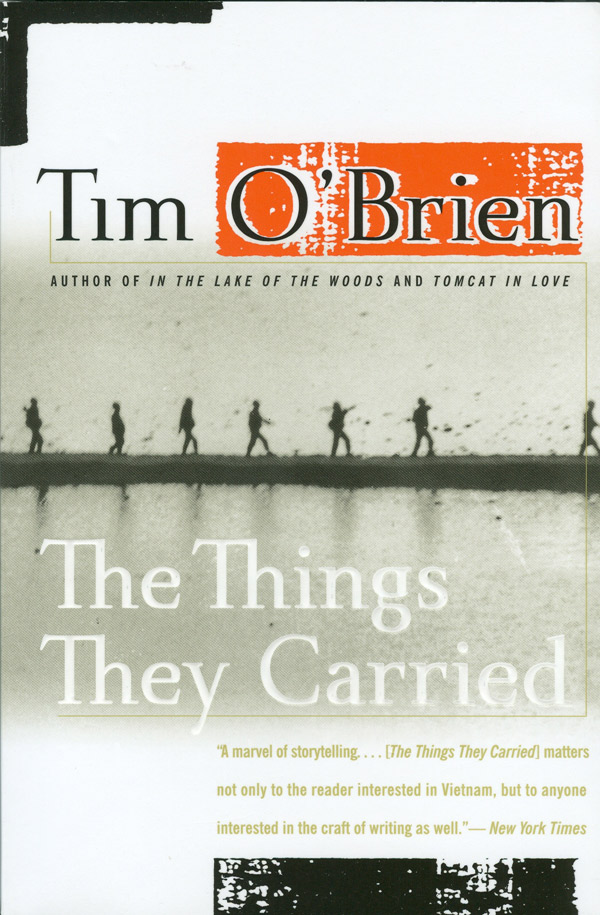Tim O’Brien Quotes Pt. 2: The Subjectivity of Truth

Last week, I discussed the first half of this quote from the piece “Notes” in Tim O’Brien’s book, “The Things They Carried.”
By telling stories, you objectify your own experience. You separate it from yourself. You pin down certain truths. You make up others. You start sometimes with an incident that truly happene and you carry it forward by inventing incidents that did not in fact occur but that nonetheless help to clarify and explain.
“The Things They Carried” is an excellent book. Anyone who has taken a creative writing course in college has read the title story. I read it as an undergrad and was inspired by the way O’Brien had written a story that was more of a list than a “Once upon a time” – then set it aside after feeling like I got the point, that soldiers each carried unique objects symbolizing their personal baggage.
I picked up a free copy of “The Things They Carried” this summer, feeling like I should read such an acclaimed work, but not being too excited by the prospect: I felt that the one story I’d read could have been a lot shorter, and I am sick of self-congratulatory baby boomer crap about the sixties. Boy was I pleasantly surprised.
A recurring theme in “The Things They Carried” is the subjectivity of truth. How two people could be in the same place at the same time and describe it differently. How memory works. How we embellish stories to make them more believable, more enjoyable, or to drive a point home. These are all concerns when we write creative nonfiction.
Since the stories that we are the most passionate about come from our own lives, students in the Fiction Writing department are encouraged to pull from reality. Hell, our third workshop, Proseforms, is based around a nonfiction project called an Instance Collection, where we write a bunch of short pieces with a common theme. This was the true beginning of my writing about being biracial. Other classmates wrote about traveling in Mexico, battles with depression, Muay Thai fighting, memories of a family friend… anything.
As I write stories from my own life, I sometimes worry that the other people who were there will discredit what I was saying with a simple, “It’s all a lie! The wallpaper was blue, not green!” or that I’ll go home for the holidays and catch a bunch of heat from my parents as they point out that I was so self-absorbed when I was fifteen that I had no idea what was really going on.
But, does the color of the the wallpaper change the story, or is it just a detail included to make the scene come to life in the mind of the billions of people who were not there? And, if the story’s about a teenager’s perspective on an event, then wouldn’t it compromise the story if the character wasn’t self-absorbed?
Maybe I’m just preparing arguments for when I go to Virginia over Christmas, but I’ve been thinking about this a lot. When I write from my life, I have the added perspective of time and maturity, but how much can I allow that to color my writing without each story reading like it was written with the caveat, “I sure was an idiot ten years ago?”
WEEK LINKS:
Learn about the Fiction Writing department by reading its students’ work. Here’s “St. Kevin of Cleveland” by Patrick Salem in Joyland.
